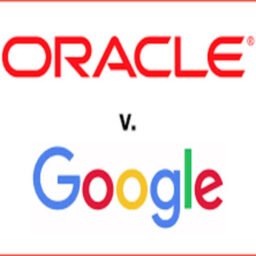INTRODUCTION TO TRADEMARK TROLLS
Trolls in a layman language is the act of posting provocative posts or message online intentionally to annoy someone .In the field of law, Trademark Trolls is the practice of frivolous filing of trademark registration applications without the slightest intention to use it .The only reasons for filing these applications are extracting of profits from large entities by either filing a lawsuit claiming infringement or to enter into negotiation for licenses. The practice of trademark trolls makes the brands owner faces some real challenges. Opportunistic Trademark registrants and Suspect trademark users are the two classes of people who have the accusation of trademark trolls.
FIRST TO FILE AND FIRST TO USE SYSTEM
There are two systems for providing trademark registration which is followed by the jurisdictions the first to file and the first to use. The First to file system for registration is used in several jurisdictions around the globe one of them being China. Article 31 of the Trademark Law of People’s Republic of China, 1993 states that when there are two or more applicant applying to register similar or identical trademarks for use on similar kind of goods the trademark office after conduction of examination and announce the trademark whose registration was earlier than rest those who had applied. The disadvantage that lies in this system is trolls file for registration on a first to file basis without any intention to use it. Even a big Company like Apple had fallen prey to this practice in 2012 and had to pay a whooping amount to a Chinese company for their trademark “iPad “. This proves the importance of trademark for these big entities and the extent to which the companies are willing to go to protect their asset that is their trademark.
In a recent case in China the Supreme Court there has opted for a strong approach to counteract trademark trolling. Two companies in China had registered the mark ‘UL’ which was already in use by a famous clothing brand Uniqlo. The Supreme Court held that registration was done in bad faith and further stated the there will be no support for malicious litigation and the participants in the market should inculcate honesty and credibility as their baseline. The court later in its finding also mentioned that the plaintiff in the case had many trademark applications on its name. This proves its malicious intention. There arise such instances in jurisdictions which follow first to file rule.
Contrarily , US follows the first to use system for filing of applications which is procedurally better than first to file but still trademark trolls have found their way around . In US along with Section 45 of Lanham Act which lays down the importance of use of mark by a person court also reinforce the stipulation via supplementary documents. Measures such has abandonment of mark on non-usage which is also applicable to foreign holders and cancellation of registration keeps a check on these trolls from frivolously getting their mark registered. However there have still been cases of trademark trolling in US .Recently during Covid there had been surge of these trademark trolls.
POSITION AND RECENT DEVELOPMENT IN INDIA
In India the First to use system is followed and this somewhere reduces cases of trademark trolling .However trolls have found a loophole where applications are filed on proposed to be use basis . In this case if filing is done for registration of trademark and it is not in use for a continuous period of five years then it is subject to cancellation which gives time to trolls to exploit their position. Also when marks are applied for a proposed to be used basis with future use the application which was the first to be filed is given priority. These are a few procedural loopholes that prove to be a disadvantage for the legitimate users as few trademark applicants and registrants misuse and take unfair advantage of it. The Courts in India have in many recent cases acknowledged these loopholes and have given decisions in favour of the legitimate users. In the case of H&M ,Hennes and Mauritz v. HM megabrands Pvt. Ltd H & M had sued HM Megabrands for trademark infringement .The Delhi High Court in this case granted interim injunction stating that not granting of injunction would cause damage and further economic loss to the plaintiffs . This judgement emphasizes on the fact that courts would not entertain acts of trademark trolling and also that foreign marks are protected equally in the country.
In another very recent and amusing case of trademark trolling just a few months after Sony had made an announcement of its release of PS5 in class 28 , the Delhi based respondent filed for registration of mark. However the trademark application was later withdrawn by the respondent and the intention behind such a registration was abundantly clear which was extracting of money from Sony. Even though the past decisions by the court have been in favour of the legitimate users it should still be taken into consideration that that trademark applications which are filed on an proposed to be use basis, such intentions can be honest or dishonest and this allows the opportunistic trademark trolls to remain as a trademark holder for a certain time. Even after procedural safeguards existing and favourable decisions by courts, opportunistic trademark trolls can still find ways to exploit their trademark registrations. Therefore filing of trademarks registrations should be done early in India so that the rights can be asserted and their remains no room for trolls.
WAY AHEAD AND SUGGESTIONS
When goodwill and reputation is attached to a business it becomes necessary to protect the trademark. Many a times Trademark trolls use the loopholes in the law to use it against the rightful holders for extraction of money by initiating infringement suits. Some of the measures which can be taken to avoid cases of trademark trolling are:
- Enhancing the procedure of registration mainly in jurisdictions where first to file system is in use .Companies should engage in vigilant search and establish watch services to identify trolls at an initial stage. Updating the search at a regular time interval will be a helpful step for the owners of the trademarks to be aware of any developments on a local level.
- The fees for filing registrations should be updated on a periodical basis and necessary changes should be implemented keeping in mind the changing dynamics of business and economy so that uncontrolled registrations do not take place.
- Companies or entities can track the use of its own trademark in countries which are troll friendly by saving invoices , correspondence with the people distributing and commercial documents.
- Legislative developments in the field of trademark law along with a judicial support will help to combat the problem. The Courts have recently in their decisions given a reality check that application filed frivolously and with malice will not be entertained. This step also has open the door for the foreign investors who are planning to setup their identity in India.
Even though the problem of trademark trolling in India has not been as severe in jurisdiction which use the first to file system there needs to be a robust IP regime so that foreign investors find it safe to proceed with investments and domestic endeavours also sustain in the long run.
Author(s) Name: Kajal Chandra (UPES, Dehradun)









